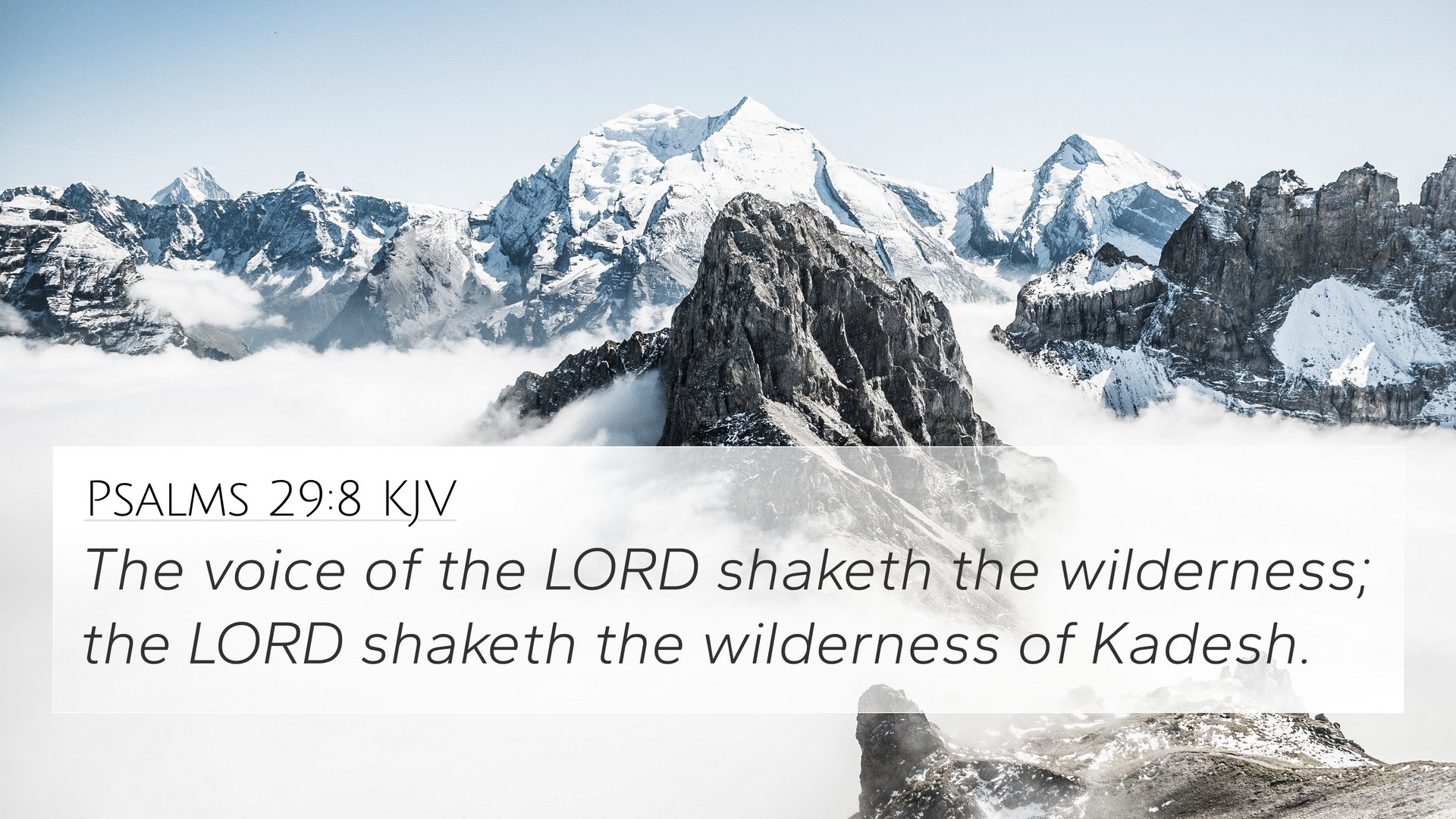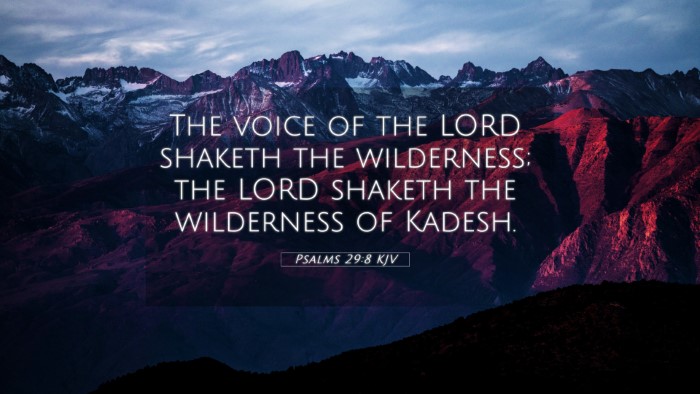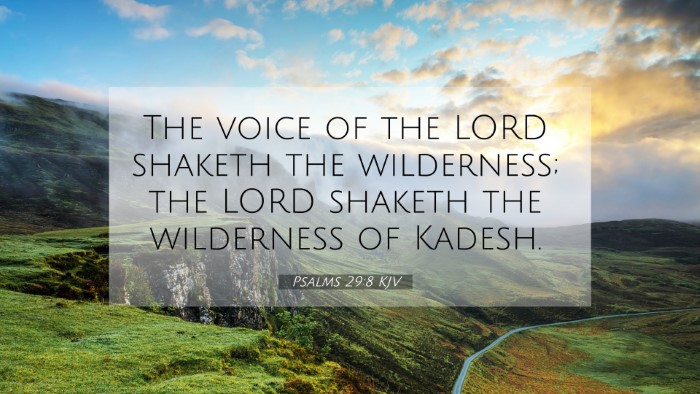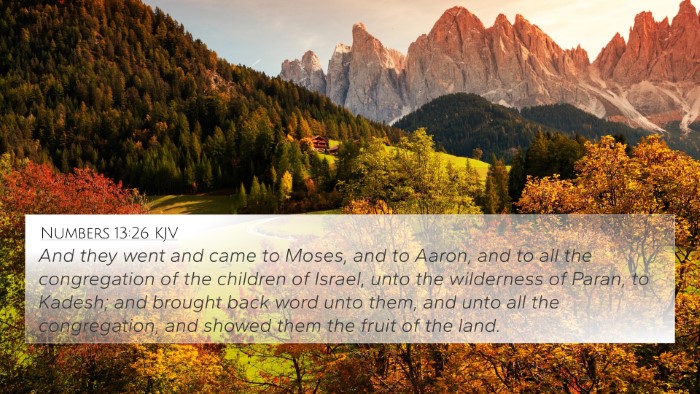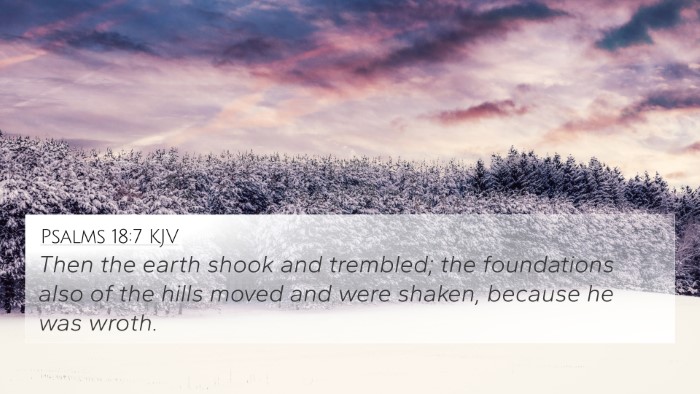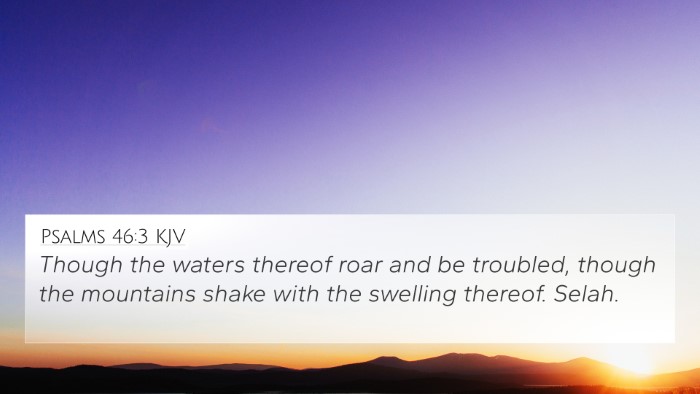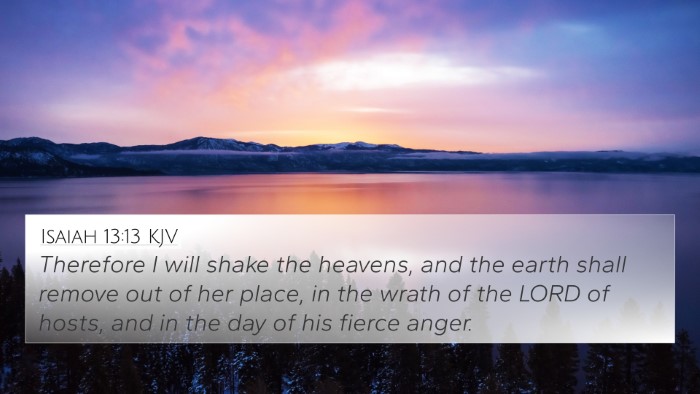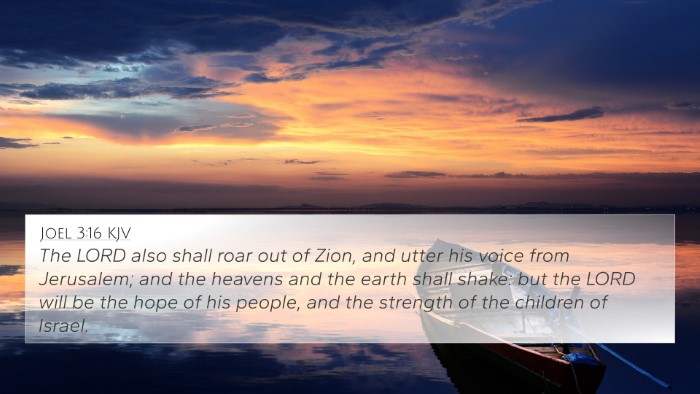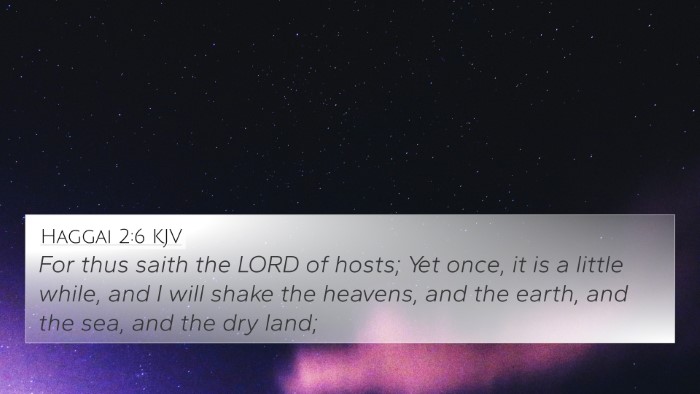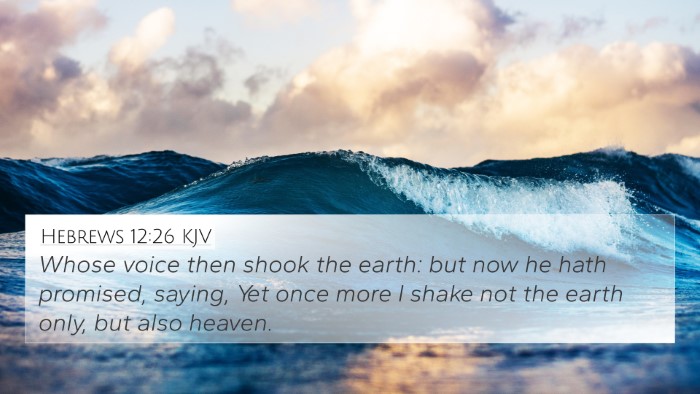Psalms 29:8 - Understanding the Verse
Psalms 29:8 states, "The voice of the Lord shakes the wilderness; the Lord shakes the wilderness of Kadesh." This powerful verse speaks to the majesty, authority, and impact of God's voice in creation and history. Below is a comprehensive analysis of this verse and its connections with other scriptures, providing insights from various public domain commentaries.
Key Themes and Insights
- The Authority of God's Voice: The verse emphasizes the might of God's words, which can cause significant alterations – even shaking the wilderness. According to Matthew Henry, this illustrates God's power over nature and the world.
- Divine Judgment and Presence: Albert Barnes notes that the shaking of the wilderness signifies God's judgment, showing how even desolate places respond to His call. This reflects the reverence and fear that His voice commands.
- Symbolism of Kadesh: Adam Clarke highlights that Kadesh was a location of significance for the Israelites, associated with their wandering and the giving of the law. This reference underscores transformation and the call for Israel to obey the divine commandments.
Cross-References
Psalms 29:8 relates to various other scripture passages that deepen the understanding of its themes:
- Isaiah 40:3: "The voice of him that crieth in the wilderness, Prepare ye the way of the Lord..." - This verse also emphasizes God's command and preparation in the wilderness.
- Hebrews 12:26: "Whose voice then shook the earth; but now he hath promised, saying, Yet once more I shake not the earth only, but also heaven." - Here, the shaking symbolizes God’s judgment, linking it back to the impact of His voice.
- Job 37:2-5: "Hear attentively the noise of his voice, and the sound that goeth out of his mouth..." - This affirms the ancient understanding of God's powerful voice in nature.
- Psalm 46:6: "The heathen raged, the kingdoms were moved: he uttered his voice, the earth melted." - This shows the response of creation to God's word.
- 1 Samuel 12:17: "...the Lord will send thunder and rain; that you may perceive and see that your wickedness is great..." - This depicts God’s voice provoking awe and fear.
- Amos 3:8: "The lion hath roared, who will not fear? The Lord God hath spoken, who can but prophesy?" - A reference illustrating the inevitable response to God’s voice.
- Psalm 104:7: "At thy rebuke they fled; at the voice of thy thunder they hasted away." - Another illustration of God’s authority over creation.
- Zephaniah 1:7: "Hold thy peace at the presence of the Lord God: for the day of the Lord is at hand..." - Reflects the weight of God's impending judgment and the power of His voice.
- Matthew 8:27: "But the men marvelled, saying, What manner of man is this, that even the winds and the sea obey him?" - A New Testament perspective on the authority of Jesus, seen in light of God's voice in Psalms.
- Revelation 14:2: "And I heard a voice from heaven, as the voice of many waters, and as the voice of a great thunder..." - This showcases the awe-inspiring power of God’s voice in eschatological events.
Thematic Connections
This verse invites comparative analysis across both the Old and New Testaments, illustrating the continuity of God's relationship with His creation through the power and authority of His voice:
- Creation and Command: Psalms often speak of God's creative power (Genesis 1). The voice that shakes the wilderness operates in the same authority that brought forth the universe.
- Divine Interventions: Instances where God's voice intervenes in human affairs, demonstrating His authority (e.g., Exodus 19:19).
- Judgment in Prophetic Literature: Prophets routinely connect God's voice with calls for repentance and actions in nature (e.g., Ezekiel's call).
Conclusion
Psalms 29:8 is a powerful reminder of the grandeur and influence of God's voice. By studying the connections between this verse and others, believers can deepen their understanding of the nature of God’s authority and His ongoing interaction with creation. This verse encourages reflection on the transformations that occur in response to divine command and the reverence owed to God's word.
